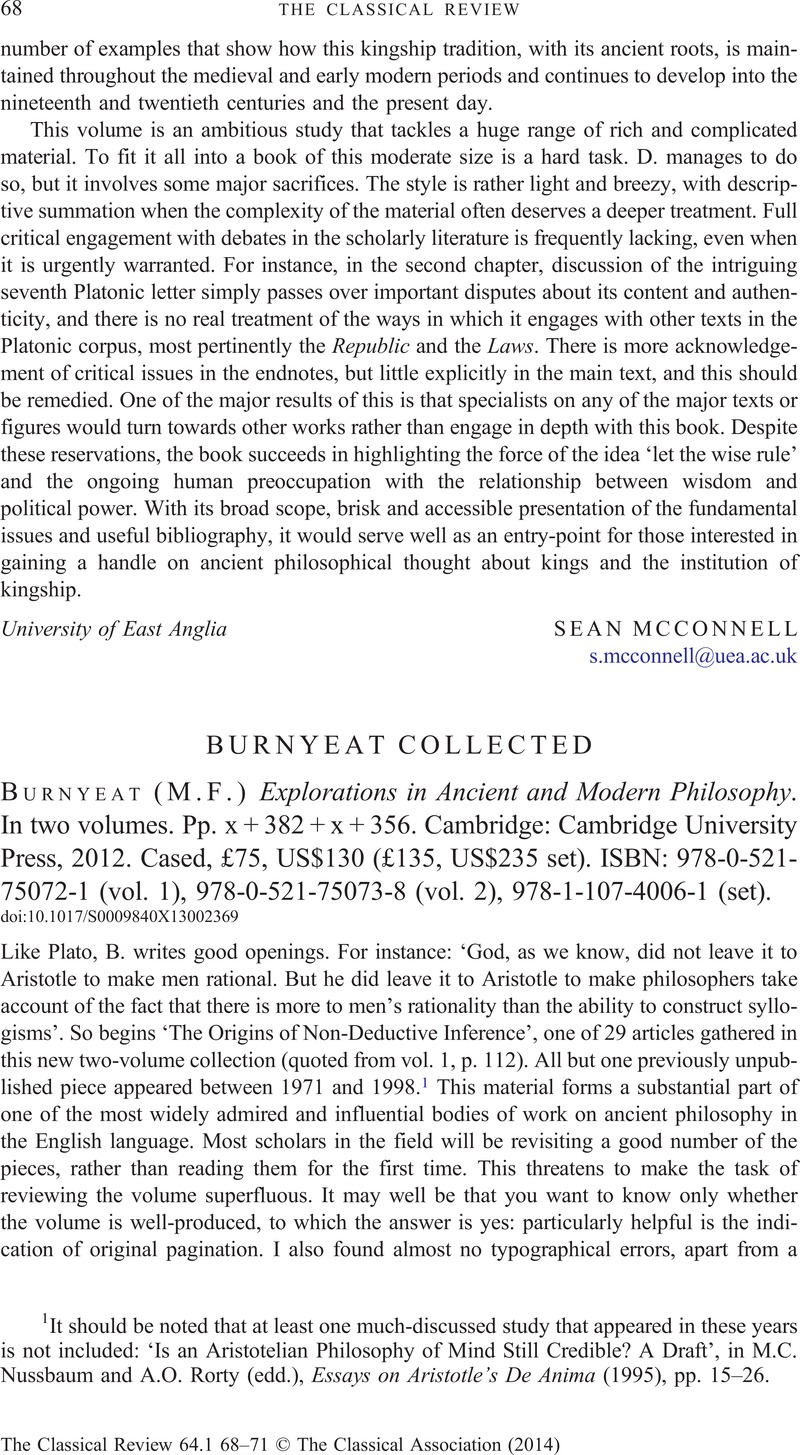No CrossRef data available.
Published online by Cambridge University Press: 20 March 2014

1 It should be noted that at least one much-discussed study that appeared in these years is not included: ‘Is an Aristotelian Philosophy of Mind Still Credible? A Draft’, in Nussbaum, M.C. and Rorty, A.O. (edd.), Essays on Aristotle's De Anima (1995), pp. 15–26 CrossRefGoogle Scholar.
2 Some of my own work on philosophy in the Islamic world has simply applied B.'s insight to Arabic texts; see e.g. Adamson, P., ‘On Knowledge of Particulars’, Proceedings of the Aristotelian Society 105 (2005), 273–94CrossRefGoogle Scholar.
3 For instance S. Gersh and D. Moran, Eriugena, Berkeley and the Idealist Tradition (2006).
4 Initiated by R. Sorabji, Time, Creation and the Continuum (1983), pp. 287–94. Responses in Hibbs, D., ‘Was Gregory of Nyssa a Berkeleyan Idealist?’, British Journal for the History of Philosophy 13 (2005), 425–35CrossRefGoogle Scholar and Hill, J., ‘Gregory of Nyssa, Material Substance and Berkeleyan Idealism’, British Journal for the History of Philosophy 17 (2009), 653–83CrossRefGoogle Scholar. All three discussions begin by citing B.
5 Black, D.L., ‘Avicenna on Self-Awareness and Knowing that One Knows’, in Rahman, S., Hassan, T. and Street, T. (edd.), The Unity of Science in the Arabic Tradition (2008), pp. 63–87 CrossRefGoogle Scholar.